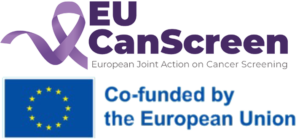About the Course
WHY ATTEND?
This blended-learning course was designed for European gastroenterologists involved in clinical training or leadership in gastric cancer screening or early diagnosis, aiming to enhance the quality and reporting of upper GI endoscopy.
Learn from leading experts, gain up-to-date, evidence-based knowledge, and improve patient care by increasing detection rates and enhancing reporting quality.
The course includes: asynchronous webinars, peer case assessments, an interactive webinar, and a two-day in-person module in Porto or Kaunas.
No tuition fees | Travel & accommodation may be funded
Download Complete Course DescriptionAIM AND LEARNING OUTCOMES
This course aims to strengthen the knowledge, attitudes, and practices of endoscopists in upper gastrointestinal endoscopy, to improve the overall quality and reporting of procedures and to increase the detection rate of gastric cancer across clinical settings.
By the end of the course, participants should be able to:
- Identify and describe current technologies used in upper GI endoscopy, with emphasis on high-resolution imaging and virtual chromoendoscopy
- Recognise key anatomical landmarks and correlate them with expected findings; apply relevant endoscopic classifications, including the Paris classification, to support early detection and guide clinical decision-making in gastric lesions
- Explain appropriate biopsy techniques and the process of histological analysis; interpret pathology reports accurately and correlate findings with clinical presentations
- Identify endoscopic scores and superficial lesions using image and video interpretation, and integrate endoscopic and histological findings to inform clinical decision-making
- Analyse the epidemiology of post-upper endoscopy gastric cancer and the expected detection rates across different clinical settings
- Apply MAPS and other current guidelines for the management of premalignant and early malignant gastric conditions
- Enhance the quality of endoscopy reporting by understanding required components, identifying common procedural mistakes, and proposing strategies for improvement
- Explain the role of artificial intelligence in upper GI endoscopy, pathology, and training; critically appraise its performance and adhere to ethical and regulatory standards
No Tuition Fees
Free registration for selected participants
Travel Support
Travel & accommodation may be funded
Expert Faculty
Learn from leading European experts
Blended Learning
Online and in-person components
Course Structure
The course will be delivered in three editions. Each edition includes asynchronous webinars, peer assessment of endoscopy cases, an interactive (synchronous) webinar, and a two-day face-to-face module with lectures and workshops. The face-to-face sessions will be held in Porto (1st and 3rd editions) or Kaunas (2nd edition).
First Edition - Porto, Portugal
Venue: Portuguese Oncology Institute of Porto (IPO Porto)
- Asynchronous webinars: 3 Nov - 15 Jan 2026
- Peer assessment: 15 Dec - 15 Jan 2026
- Interactive webinar: February 2026
- Face-to-face course: 19-20 Mar 2026
Second Edition - Kaunas, Lithuania
Venue: To be confirmed
- Asynchronous webinars: Feb - Apr 2026
- Peer assessment: April 2026
- Interactive webinar: May 2026
- Face-to-face course: June 2026
Third Edition - Porto, Portugal
Venue: Portuguese Oncology Institute of Porto (IPO Porto)
- Asynchronous webinars: Oct - Dec 2026
- Peer assessment: December 2026
- Interactive webinar: January 2027
- Face-to-face course: February 2027
Application Information
Admission Criteria
- Medical doctors specialised in gastroenterology working in European countries belonging to the EUCanScreen consortium or other countries from the European Union
- Playing an active role in the clinical training of physicians in upper GI endoscopy and/or holding leadership roles in the field of gastric cancer screening/early diagnosis;
- At least one or two participants from each of the aforementioned countries are expected to take part
Selection Process
Candidates who meet the admission criteria will be ranked by country and based on application order
Faculty
Scientific Commission
- Mário Dinis Ribeiro (scientific coordinator)
- Alvaro Teran
- Dalius Petrauskas
- Diogo Libânio
- Miguel Fraile
- Romanas Zykus
Pedagogical Support
- Patrícia Alves (pedagogical coordinator)
- Raquel Ramos
Faculty
- Alvaro Terán
- Cesare Hassan
- Dalius Petrauskas
- Diogo Libânio
- Fátima Carneiro
- Hugo Uchima
- Judith Honing
- Manon Spaander
- Mario Dinis Ribeiro
- Miguel Areia
- Miguel Fraile
- Patricia Alves
- Raf Bisschops











